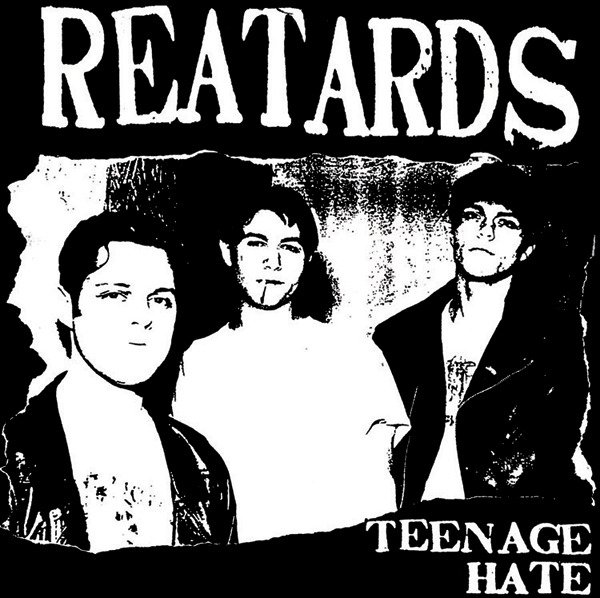Like the delta city in Egypt after which it’s named, Memphis, Tennessee is well-known for the fertility of its soil. Since the 1940s, however, that soil is better known for nourishing musicians than crops. As the birthplace of the blues and later the home of Sun Records and Elvis Presley, Memphis is a place where the spirit of rock ‘n’ roll runs deep. Its unique history plays a tremendous role in shaping the artists who cut their teeth there, to the point where even punks — the sort of riff-raff who generally pride themselves on wanting to take a baseball bat to tradition’s upturned nose — seem powerless to escape the city’s magnetic legacy. The recently departed Jay Reatard was no exception: the son of a rootless tribe, he nonetheless drank deep of the wellsprings of his hometown.
For many indie rock devotees, Reatard (born Jimmy Lee Lindsey Jr.), seemed to emerge ex nihilo onto the musical landscape of the late aughts, announcing his bratty presence with a spate of singles on Matador and In the Red. Nothing, of course, could have been further from the truth. At 25, Lindsey had put in enough time to launch half a dozen solo careers. A glance at the discography on his Wikipedia page reveals an artist with the kind of restless creativity and work ethic that would put even the most prolific musician to shame, including stints with gothic synth punks Lost Sounds, a side project with Goner Records founder and former Oblivian Eric Friedl called Bad Times, and a smattering of idiosyncratic projects like Destruction Unit and Terror Visions, just to name a handful.
In an effort to keep Lindsey’s work alive, Goner is embarking on a series of reissues, beginning, appropriately enough, at the beginning: with the artist’s earliest recorded work with Reatards. Teenage Hate collects the band’s 1998 debut LP, as well as a pair of rare cassette releases, The Reatards and Fuck Elvis Here’s The Reatards. Fans of Blood Visions or Watch Me Fall will get to see a slightly different (though still recognizable) side the Jay Reatard that they’ve come to know and love amid the just-shy-of-40 tracks shoehorned into this reissue, but even more importantly, it provides a crucial link in the chain running between the artist’s final works and his humble origins.
Inextricably linked with the birth of The Reatards are fellow Memphis punks, The Oblivians. Credited as being the chief inspiration behind Lindsey’s sojourn into rock ‘n’ roll, the band was a sizeable force in their local indie scene. The group synthesized the varying evolutionary strands of popular music that metastasized out of their hometown and ran them through a punk rock Cuisinart, building an aesthetic out of shit-fi garage rock that dipped into doo-wop, gospel, and the blues, all delivered with a cretinous snarl. The instrument-swapping trio gained notoriety for their unusual twin guitar, no bass line-up, which rendered their ramshackle tunes all the more cacophonous.
It’s hard to imagine Reatards coming about without The Oblivians. Lindsey was reportedly so enamored with the band that he sent Eric Friedl a home-recorded demo tape, which quickly led to a record deal with Goner Records. The Reatards’ eponymous cassette release was recorded, in part, by Jack Oblivian, and one of the band’s earliest incarnations consisted solely of Jay on guitar and vocals and Greg Cartwright (performing under the pseudonym “Manwich”) on drums. The Oblivians’ stranglehold on Lindsey’s imagination is readily apparent in his early recordings. The Reatards’ gritty garage punk could be the radiation-exposed half-brother to Popular Favorites, sprouting Chuck Berry guitar riffs and 50s rock solos like mutated limbs.
But even if Lindsey was taking cues from his elders, the stamp he put on the music was purely his own. Even at 18, he was a gifted songwriter whose best tunes could barely disguise their solid-as-a-rock (Ford tough?) melodies beneath the trash heaps of guitar fuzz and tape hiss. Early album stand-out “Stacye” manages to smuggle a rubbery rockabilly guitar lick into the verse of a blazing punk panegyric to Lindsey’s at-the-time girlfriend. The metronomic snare beat of “Old News Baby” provides the ideal backdrop to Lindsey’s unhinged tirade against his unfaithful ex. The compilation’s best moment comes with “Out of My Head into My Bed,” drawing added force from the delicious contrast between the crisp three-chord melody (one of the finest of the man’s career) and Lindsey’s rabid animal howls.
The perspective that Lindsey brought to the songs was totally his own as well. The same caustic, anti-social bile he spewed on his solo records can be found congealing at the base of the mic stand on nearly every track. For each love song (or lust song) with even a hint of promise, there are five or ten bitter break-up anthems and ditties that depict sexual commerce in the most misanthropic light imaginable. “If you’re looking for a man to treat you right/ Hold you close all through the night/ It ain’t me,” he rages on “It Ain’t Me,” and proclaims with unsettling candor on “Out of My Head…,” ”You’ll believe in what I feed you/ Feed you lies almost every day/ But you’re just too dumb to see/ That one-two, one-two/ Baby I got you.” Not particularly deep or life-affirming, but what do you expect from an album titled Teenage Hate?
This new reissue is valuable document, giving an ideal vantage point from which to examine the formative years of the last decade’s most prolific punk songwriter and to understand his relation to the musical milieu — both contemporary and historical — that shaped him. For all its furious frothing at the mouth, Teenage Hate is a snapshot of a young artist deeply immersed in his craft, for whom the mottled tradition of his home city provided a launching point for vibrant career cut short long before its time.
